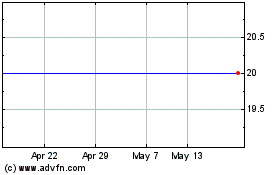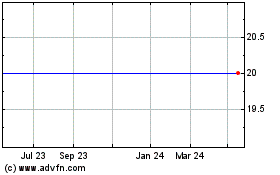Research Update
December 12 2000 - 3:32AM
UK Regulatory
RNS Number:5636V
Pall Corporation
11 December 2000
For more Information Contact:
Patrice Radowitz: Media, Pall Corporation
(516) 484-3600, ext. 6111; Pat_Radowitz@pall.com
Diane Foster: Investor Relations, Pall Corporation
(516) 484-3600, ext.6109; Diane_Foster@pall.com
Pall Corporation Announces Pathogen Inactivation Blood Product Clears First
Hurdle
East Hills, NY (12/05/200) -- A revolutionary pathogen inactivation technology
that potentially can safeguard the blood supply from bacterial and viral
contaminants will move forward to the next phase of testing based on the
successful completion of the Phase I clinical trial of INACTINE (TM) Pathogen
Inactivation Technology. The program moved through a Phase I clinical trial
during the year and has progressed to a Phase II clinical trial.
Study results demonstrating that INACTINE (TM) -treated red blood cells can be
stored for 28 days and retain their viability following reinfusion were
presented today by James P. AuBuchon, MD, Professor and Acting Chairman,
Department of Pathology, Dartmouth-Hitchcock Medical Center, at the American
Society of Hematology (ASH) meeting in San Francisco, CA. Pall Corporation
(NYSE: PLL), the world leader in blood filtration, is collaborating with V.I.
Technologies, Inc. (VITEX)(Nasdaq: VITX) to be the first company to
commercialize pathogen inactivation technology for red cells, the most
frequently transfused blood component. The market potential for pathogen
inactivated cellular blood components is $3.8 billion per year.
The Phase I clinical trial investigated the 24-hour recovery and survival of
INACTINE (TM) -treated red blood cells in human subjects. The randomized, two
arm crossover study, compared INACTINE (TM) -treated red blood cells with
untreated control red blood cells. The study found that INACTINE (TM) -treated
red blood cells are viable after 28 days of storage, and that the means of the
post-transfusion 24-hour recovery percentage and the circulating half-life of
treated red blood cells are equivalent to the means of the control units. In
terms of safety to the subjects, no significant changes in serology were
observed, and the treated cells did not elicit an immune response.
"We are very pleased with the Phase I results and proud to be a part of the
blood safety revolution that will help to provide the safest products possible
for all patients who need a blood transfusion," said Sam Wortham, President of
Pall's worldwide medical business.
INACTINE (TM) Pathogen Inactivation Technology targets nucleic acid to inactive
blood-borne viruses, bacteria, and other pathogens. The INACTINE (TM) Pathogen
Inactivation product for red blood cells is currently entering a Phase II
clinical trial. The multi-center randomized, controlled, parallel-group study
will evaluate the safety and maximum storage time (42,35 or 28 days) of a unit
of INACTINE(TM) -treated red blood cells when administered to normal adult
subjects. The storage time will be determined by the in vivo survival of the
unit of INACTINE (TM) -treated red blood cells relative to a control red blood
cell unit.
About Pall Corporation
Pall is the leader in the rapidly growing filtration and separations industry.
Pall serves customers throughout the health care and industrial marketplace,
providing leading-edge products for use in transfusion medicine,
biopharmaceuticals, semiconductors, municipal drinking water, aerospace and a
host of other industries. Pall blood filters are used in all ten countries that
have mandated universal leukocyte reduction and in the 14 countries, including
the US, that are moving toward routine blood filtration. In addition, Pall
Corporation is co-developing INACTINE (TM) Pathogen Inactivation technology with
V.I. Technologies, Inc. (VITEX). The INACTINE (TM) technology is being designed
to inactivate viruses, bacteria and protozoa, by disrupting pathogen nucleic
acid replication. Pall will be the exclusive marketer of the INACTINE (TM)
product for both red cells and platelets., Pall is also involved in extensive
research and development in many other areas of blood safety including devices
designed for sensitive and early detection of bacterial contamination of
platelets, considered to be one of the greatest transfusion risks today.
Pall (NYSE: PLL) has annual sales of over $1.2 billion. The Company is
headquartered in East Hills, New York and has operations in over 30 countries.
Further information can be found at htttp://www.pall.com.
Except for the historical information contained herein, the matters discussed
are forward-looking statements made pursuant to the safe harbor provisions of
the Private Securities Litigation Reform Act of 1995. These statements involve
risks and uncertainties, such as quarterly fluctuations in operating results,
the timely availability of new products, market acceptance of the company's
products, the impacts of competitive products and pricing, government regulation
of the company's products and other risks and uncertainties set forth in the
company's filings with the Securities and Exchange Commission. These risks and
uncertainties could cause actual results to differ materially from any
forward-looking statements made herein.
Equatorial Palm Oil (LSE:PAL)
Historical Stock Chart
From Jun 2024 to Jul 2024

Equatorial Palm Oil (LSE:PAL)
Historical Stock Chart
From Jul 2023 to Jul 2024
